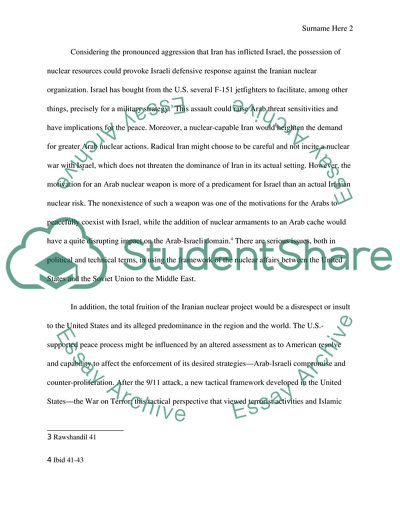Cite this document
(U.S.-Israel Relations with Iran Concerning the Nuclear Bomb Essay Example | Topics and Well Written Essays - 3750 words, n.d.)
U.S.-Israel Relations with Iran Concerning the Nuclear Bomb Essay Example | Topics and Well Written Essays - 3750 words. https://studentshare.org/history/1833751-us-role-in-the-middle-eastiranisrael
U.S.-Israel Relations with Iran Concerning the Nuclear Bomb Essay Example | Topics and Well Written Essays - 3750 words. https://studentshare.org/history/1833751-us-role-in-the-middle-eastiranisrael
(U.S.-Israel Relations With Iran Concerning the Nuclear Bomb Essay Example | Topics and Well Written Essays - 3750 Words)
U.S.-Israel Relations With Iran Concerning the Nuclear Bomb Essay Example | Topics and Well Written Essays - 3750 Words. https://studentshare.org/history/1833751-us-role-in-the-middle-eastiranisrael.
U.S.-Israel Relations With Iran Concerning the Nuclear Bomb Essay Example | Topics and Well Written Essays - 3750 Words. https://studentshare.org/history/1833751-us-role-in-the-middle-eastiranisrael.
“U.S.-Israel Relations With Iran Concerning the Nuclear Bomb Essay Example | Topics and Well Written Essays - 3750 Words”. https://studentshare.org/history/1833751-us-role-in-the-middle-eastiranisrael.


